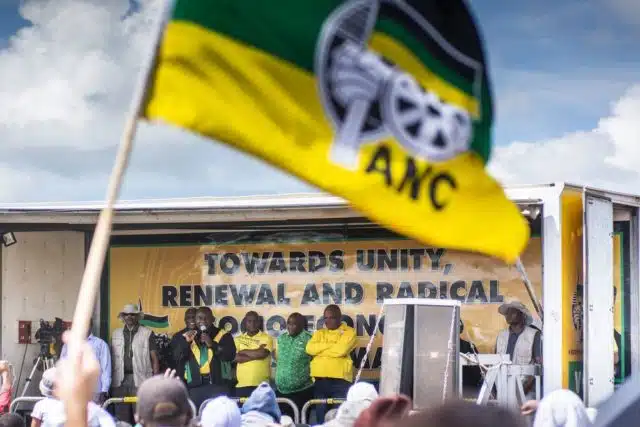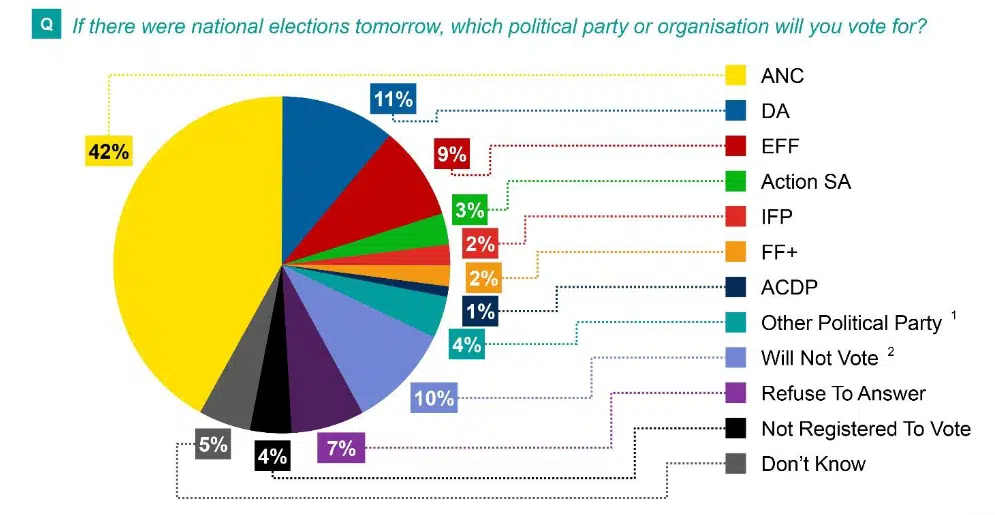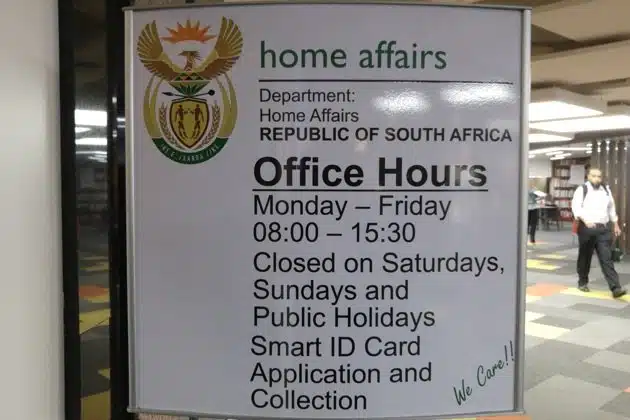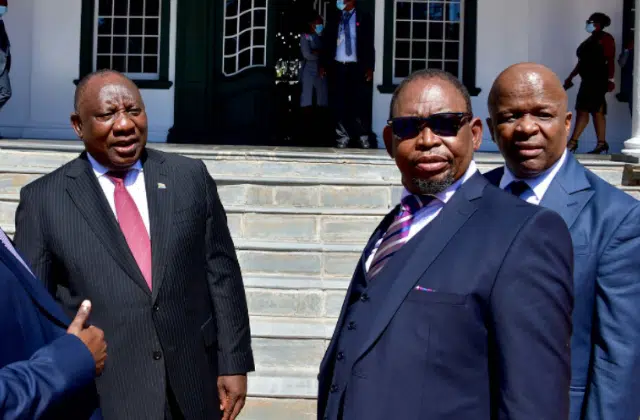
Poll data reveals ANC could get 50% in next elections
A new study conducted by the Social Research Foundation (SRF), shows that while the ruling ANC continues to lose support, it may well achieve 50% of the vote in the 2024 general elections due to the ineptitude of opposition parties that are in coalition governments at local government level.
The City Press reports that opposition parties have been unable to capitalise on a weakening ruling party – failing to gain the trust of those voters looking for an alternative.
The SRF’s 2022 election database survey, conducted in July, indicates that if an election were to be held soon, the ANC would garner roughly 50% of the votes with a 66% voter turnout or 52% with a 56% voter turnout.
The survey indicates that the DA would be the closest challenger with 25% in both the 56% and 66% voter turnout scenarios, while the EFF could get between 11% and 12%.
“New kids on the block ActionSA would get 5%, the IFP would come in with 3%, the Freedom Front Plus would get 2%, and the UDM would get 1%.”
ActionSA has gained a great deal of support in Soweto, according to the SRF poll.
Voters that were interviewed associate the ANC with terms such as ‘greed’, ‘broken promises’, ‘indifference’, ‘corruption’ and ‘criminality’, said the City Press.
But many have expressed their willingness to cast their ballots for the party and see strong positives only in its past as a struggle movement, and in Ramaphosa, it said.
“But the grip of the past is fading as the hard economic reality of the present bites and, should Mr Ramaphosa exit, the floodgates out of the ANC may open,” the survey found.
Joint campaign
South African opposition parties that formed coalitions in last year’s municipal elections are considering campaigning jointly ahead of a national and provincial vote in 2024, Bloomberg reported.
The DA and several smaller rivals have begun talks on a cooperation framework to maximise their collective support, it said. A key prize would be to secure control of the province of Gauteng, the nation’s economic hub that includes Johannesburg and Pretoria – and the one where the ANC’s majority is seen as most at risk.
The opposition coalitions that won control of Johannesburg, the neighbouring region of Ekurhuleni, and Pretoria were aware that their alliances would be “a pilot project for 2024,” Mpho Phalatse, Johannesburg’s mayor and a senior DA member, said in an August interview.
She said officials needed to demonstrate their ability “to drive cohesion.”
The Sunday Times reported that the DA had issued an ultimatum to the EFF to decide whether it wants to help the ANC retain power or be part of a coalition in two years.
DA leader John Steenhuisen told the Sunday Times this week that EFF voters would not be happy if the EFF helped the ANC retain power.
Its leader Julius Malema this week told News24 that he would consider working with the ANC after the election, but only if it was led by Paul Mashatile as president.
Ipsos poll
A poll conducted by market research firm Ipsos earlier in August showed the ANC well below the 50% mark for the 2024 elections, “while all other political parties have a lot of work to do to impress voters to turn out and draw a cross next to their names in 2024”.

Ipsos undertook a nationally representative study from 14 May to 3 July 2022 in the homes, and home languages of 3,600 randomly selected South Africans, 15 years and older. The poll was intended as a gauge of the current political sentiment and not in any way a prediction of things to come.
According to the results, the potential support for the ANC is five percentage points lower than the 42% achieved on the ballot paper, showing that a group of ANC voters vote for the party as they perceive that they do not have any other option.
This poses a very different conundrum to the ANC when compared with that of opposition parties – how do they convince voters to support the party again and turn out to vote?
“Support for the ANC in the whole country is lower than before the local government election (November 2021). This suggests that new councils have not made a difference. I would be surprised if the ANC gets more than 50% in the 2024 national election,” said Mari Harris, Ipsos Sub-Sahara Africa knowledge director.
Read: 12 million South Africans are now applying for R350 grants



